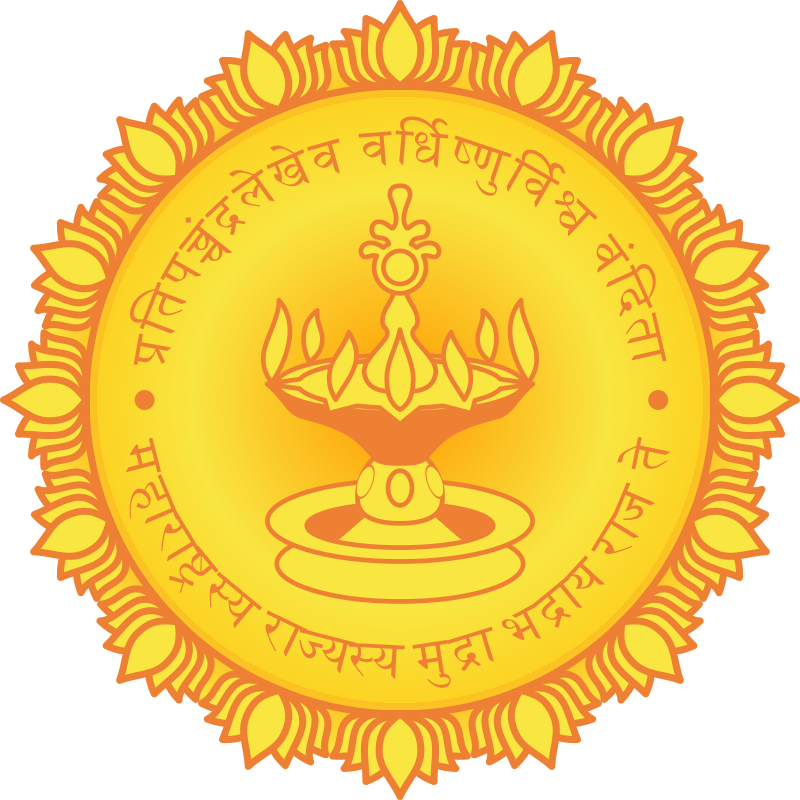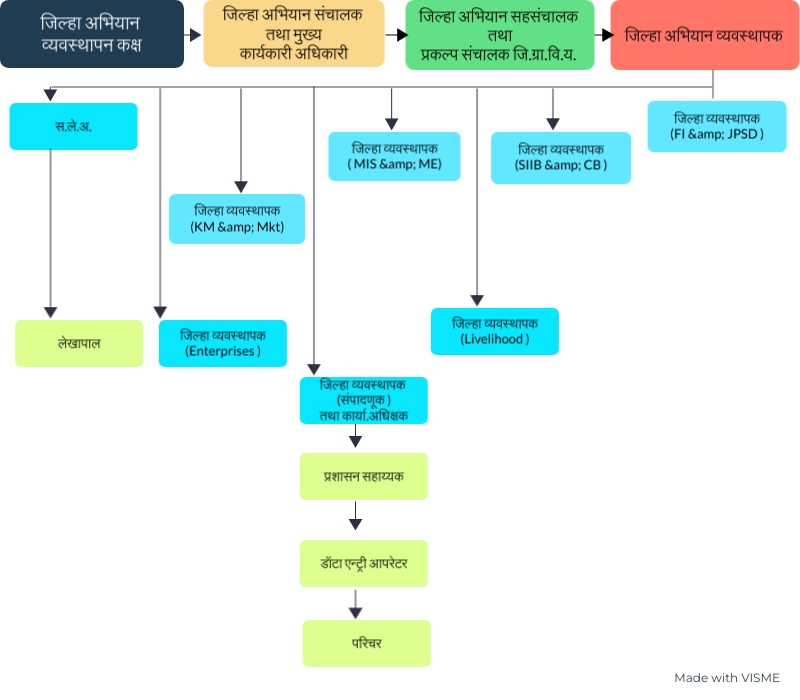Various activities are being implemented at the village level under the campaign-
Various activities are implemented at the village level under the campaign. For the success of this initiative, resource persons are selected to build the capacity of women and associated elements. The following key resource persons are working in the district. These resource persons are used for institutional building, financial literacy, agricultural development, animal husbandry etc.
-
- Group Resource Person (GRP)
Establishment and strengthening of self-help groups at the village level is an important stage of the campaign. The GRP is responsible for forming groups in villages, reviving old groups and providing necessary guidance to ensure that the groups follow the tenets. They are responsible for monitoring the groups. The GRP is an important link between the campaign and the self-help groups. The GRP is responsible for the village association. The work done by them is regularly reviewed by the village association.
- Vardhini
is working on social inclusion and establishing self-help groups of poor women in almost all intensive districts. Although the work of Vardhini is similar to that of Prerika, Vardhini does group building work in the outer districts, leaving the taluka and district. In places where the work of the campaign has just started, Vardhini organizes 15-day camps and carries out social inclusion and group building work as per the campaign policy. Generally, after the Prerika becomes proficient in her work, she is selected by the campaign as Vardhini.
- Bank Sakhi
Sakhi is one of the main objectives of the campaign to help the poor come out of poverty by establishing institutions for their financial inclusion through social inclusion. Bank Sakhi works to provide proper guidance and assistance to women in self-help groups in bank-related work. Bank Sakhi plays the role of an information center for self-help groups in bank branches. Bank Sakhi works as a link between self-help groups and the banking system, especially in opening accounts, preparing loan cases, creating financial literacy, and reviewing loan repayments. Bank Sakhi is working in major bank branches in the district.
- Krishi Sakhi
provide guidance for increasing agricultural production in the village. A woman who is active in the group and has knowledge of agriculture is selected through the group or village union. Various activities are implemented by the campaign to increase agricultural production. Especially regarding increasing paddy production, vegetable cultivation, agricultural management, etc., Krishi Sakhi guides the village union and group meetings. As per the requirement, Krishi Sakhi provides training to the beneficiaries. Krishi Sakhi is trained from time to time by an expert appointed under the campaign.
- Pashu Sakhi
help in animal husbandry in these villages. Animal husbandry is still done traditionally in rural areas. Goat husbandry is done traditionally in the district. Many families do this business as a sideline business. Pashusakhi work to ensure that this business is done in a more scientific manner, that the mortality rate of animals is controlled, that good quality animals are produced, and that the skill of preparing food from household resources is developed.
- Fish Sakhi
work for increasing fish production. There are a large number of individual ponds and small ponds in the district. Therefore, there is scope for fish farming in the district. If fisheries are combined with agriculture and animal husbandry, the production of farmers can increase. Fishmongers play an important role in motivating them for fish farming. The work of training the beneficiaries about fish farming in a scientific way is done by the fishmongers. The fishmongers are guided by the fishmongers about seed selection, seasonal preparation, fish feed, market, etc. The fishmongers are trained from time to time by district-level experts and fisheries universities.
The mission focuses on improving the standard of living in rural areas. Therefore, the mission works to provide benefits to self-help groups and their families by integrating various schemes. Some of the major schemes are as follows:
- National Rural Economic Transformation Project (NRETP)
is an institutional building project under the National Rural Livelihood Enhancement Mission, and guidance is being provided on agriculture and allied businesses to increase livelihood opportunities. The project is working to implement this work in a more dynamic manner and to create a value chain and increase market availability. Work is being done to establish producer associations, farmer producer companies, and OSFs for industries.
- Sumatibai Suklikar Udayogini Mahila Sakshakira Yojana:
This is an ambitious scheme of the state government to provide loans to self-help groups at zero percent interest rate. To benefit from this scheme, the self-help group must participate in the Maharashtra State Rural Livelihood Improvement Mission. The group must be registered on the NRLM website and must have regular repayment of bank loan installments. Groups having accounts in nationalized banks as well as district central cooperative banks can benefit from this scheme.
- R. Seti
District Leading Bank runs a Rural Self-Employment Training Institute (R-SETI) at the district level. Free training is provided by the bank for entrepreneurship and skill development. Under this, free residential training opportunities are provided. Short-term training is provided keeping in mind the local needs. Apart from this, after training, assistance is provided from the bank to get business loans and guidance for business after training. Youth in the age group of 17 to 45 years in rural areas take advantage of this scheme.
- Deendayal Upadhyay Skill Scheme
Under Deendayal Upadhyay Skill Scheme, skill development opportunities are provided to the youth. Free training is provided under this scheme in various innovative courses that are currently in demand. Training is provided to youth between the ages of 15 to 35. Training is provided as per the qualification and a government recognized certificate is given. Efforts are made in the scheme to provide employment to the concerned trainees and also for their salary increase. Special training places are provided at the departmental level for training.




